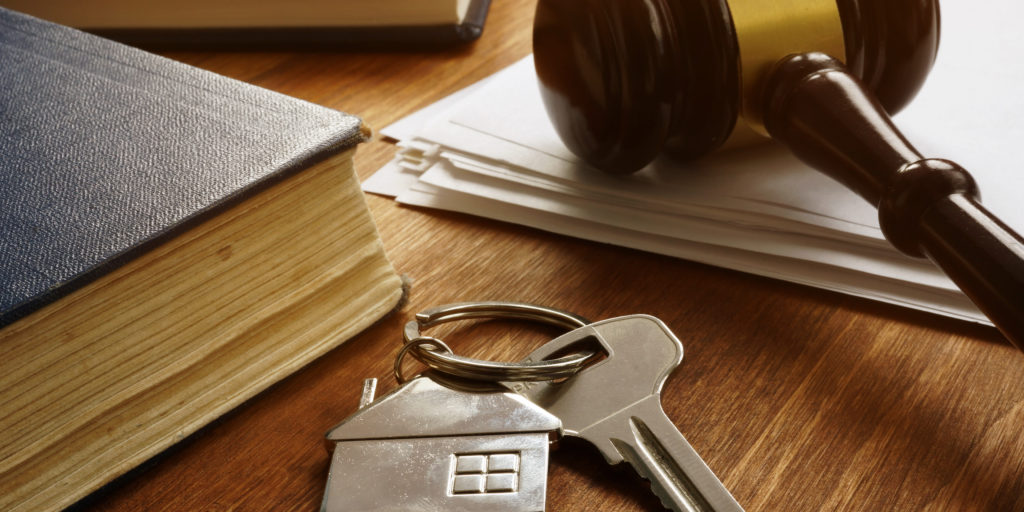Common real estate transactions are buying and selling a property, and one of the legal steps is to execute a contract of sale, commonly known as Deed of Absolute Sale (DOAS). This document serves as the binding document formalizing the transfer ownership of the property between the seller and the buyer. However, it would only be enforceable with the presence and verification of a Notary Public.
In this article, we will further discuss how important it is to get your Deed of Absolute Sale for real property transactions notarized, ensuring the legality and authenticity of the agreement.
What is Deed of Absolute Sale?
A Deed of Absolute Sale or a Deed of Sale is a legal document that serves as evidence of ownership transfer from one person to another (seller to the buyer). This document typically consists of information such as names and identities of the buyer and the seller, a detailed description of the property being sold, the amount or value of the property, a declaration of the seller that the property is free from any liens or encumbrances, and terms of payment and condition attached to the sale.
What is a Notary Public?
A notary, also referred to as a notary public, is a publicly commissioned official, a lawyer authorized by the government, specifically the Office of the Executive Judge, who serves as an impartial witness to the signing of legal documents. However, not every lawyer can automatically serve as a notary public; they must first meet the qualifications set out in the Notarial Law and apply for a commission to practice as a notary public within their designated jurisdiction.
Notary public services are generally necessary for legal documents such as real estate deeds, affidavits, wills, trusts, special power of attorney (SPA), and documents submitted to court. The 2004 Rules on Notarial Practice serves as the regulatory framework for notarial acts, including the requirements, procedures, and responsibilities of notaries public. Additional guidance on the qualifications, conduct, and duties of notaries public are stated in the Revised Administrative Code of the Philippines.
Why is a Notary Public needed in executing a Deed of Absolute Sale?
In the Philippines, notarization is the process of verifying the authenticity of documents and certifying that the signatures executed in the documents are genuine. This is important because this is primarily to ensure the legitimacy of public documents to be valid and enforceable (Civil Code of the Philippines, Republic Act No. 386). Notarization transforms a private document into a public document.
The main responsibilities of a notary public are:
A notary public verifies the identity of the person by authenticating their signatures.
A notary public ensures both parties have the legal capacity to engage in the transaction. Both parties agree without any influence, duress, coercion, or fraud.
A notary public makes a private document into public. This means it is now part of public records and can be used as evidence in court or by government agencies such as the Bureau of Internal Revenue (BIR), Registry of Deeds, and Land Registration Authority (LRA).
A notary public affirms the document’s truthfulness and minimizes the fraud risk.
A notary public certifies the authenticity of copies of certain documents.
Steps on getting a Notarized Deed of Absolute Sale
Prepare your documents. Make sure that both parties involved reviewed the document.
Go to a notary public. Make sure that the notary you approach has the jurisdiction within that location.
Present a valid ID or government-issued identification card that bears your photograph and signature. This will be used to verify the identity of the person signing the document.
The signatory must sign the deed or documents in the presence of the notary public.
The notary public will review the document for completeness and verify that it complies with the formalities required under the law. The notary will affix their official seal along with the certificate that includes the notary’s commission number, date of notarization, and the signature of the lawyer.
- Pay the notarial fee. Fees may vary depending on the type of document and complexity.
Consequences of Improper Notarization in the Philippines
If notarization is not done correctly or the requirements are not followed, the document may lose its legal validity. For instance, if the notary public does not witness the signing, the document could be considered invalid or unenforceable in court. This may make it harder for the people involved to prove its legitimacy, especially in legal disputes.
In more serious situations, if it’s found that the notary public was involved in fraudulent activities, both the notary and the parties may face criminal charges under Philippine law. This shows why it’s crucial to ensure the notarization process is done properly and follows the rules.
Sounds Overwhelming? It doesn’t have to be!
FileDocsPhil, in coordination with Duran & Duran-Schulze Law, provides seamless support for real estate and corporate transactions including notarization by combining efficient document processing with expert legal guidance. FileDocsPhil offers from document procurement to finalizing legalities, minimizing risks, and ensuring a smooth, legally sound land title transfer.
Let FileDocsPhil Do the Work!
Need further information and assistance in Notarization and Land Title Transfer? Talk to our team at FILEDOCSPHIL to know more about the requirements and process. Call us today at (+63) 917 149 2337 or send an email to info@filedocsphil.com or simply message us through the live chat for more information.








